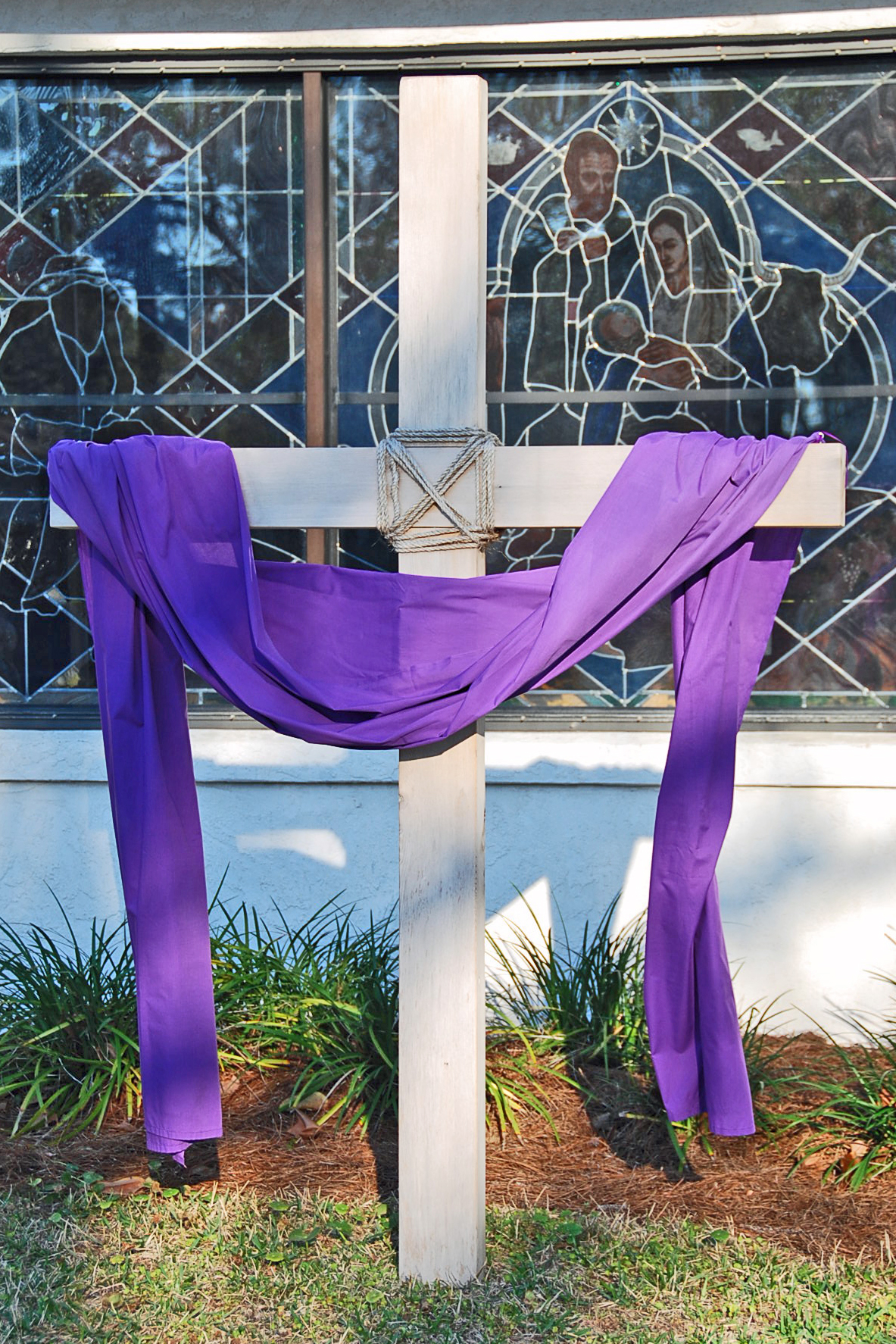May I never boast except in the cross of our Lord Jesus Christ, through which
the world has been crucified to me, and I to the world. Neither circumcision
nor uncircumcision means anything; what counts is the new creation. Peace and
mercy to all who follow this rule—to the Israel of God.
From now on, let no one cause me trouble, for I bear on my body the marks of
Jesus.
Galatians 6.14-17
Ash Wednesday is the beginning of Lent, observed by placing an ash cross on your forehead in memory and anticipation of Christ’s sacrifice.
This will be the first year I will receive the ashes on Ash Wednesday. To be honest, I’ve really no desire to walk about looking like a fool. I do not mind foolishness, but I do mind spiritual attention. I don’t want people to pay attention to me, especially not to any outward display of religious fervor. Rubbing ashes on my forehead in the shape of the cross seems about the least David McDonald-ish thing I could possibly imagine. Maybe that humiliation is good for me. Plenty of folks think I’m a little too proud, I’m sure, and it’s probably a good idea for people in positions of spiritual authority to keep from looking too self-assured. But maybe that humiliation is just wasted on one such as myself. Can the person who feels foolish ever be truly humiliated?
Anyway, despite living in a fairly conservative religious town, full of Catholics and mainline Protestants galore, I don’t see many people roaming around with the ash cross on their heads. My assistant did it last year, and my friend Lori either does it all the time and lies about it or only did it last year and lied about it from the other direction. I’ve only ever seen one person, a college student, under the age of forty bear the ashes, and I’ve never seen anyone who looks like me.
Again, those aren’t really reasons to do it or not (I’ll get to those in a moment), but they are my observations about Ash Wednesday, and I share them so you can be reminded of my liturgical infancy. I really am learning all this as I go; I’m a true beginner. As I said, there is zero appeal for me to smear my face with ashes (I haven’t even begun to consider the aff ect to my complexion, or the lack of biblical precedent, or the likelihood that I’ll forget it’s there and smear it all over my forehead into some kind of Rorschach blot), but the game-changer for me was learning where the actual ashes come from.
They are made from the burned branches of the previous year’s Palm Sunday.
The triumphs of the past are consumed by the grief of the present.
That’s so beautiful. My old triumphs have certainly turned to ash, and so I can relate to the palms. My athletic triumphs vanished faster than my physical fitness, and all I have now are some old awards and some fond memories of road trips and locker room jibes. My academic triumphs never really counted for much even as I received them. My social, pre-marital romantic, and musical triumphs, too, are nothing.
But I can take those old triumphs and give them up, give them to Christ–smear them, as it were, all over my face and my identity–and recognize that my true value is found in him, not in them. It’s hard to realize that all we have worked for turns to ash in the end, but it’s liberating too. It frees us from the misplaced and destructive notion that we are defined by our achievements and lauded because of our accomplishments.
We are not.
Strangers may appreciate these things, but our wives, children, friends and coworkers care more about who we are than what we’ve done. They care more about people who choose to be re-formed by Christ than by our old trophies and our aging stories.
That’s why I’m bearing the ashes this year. Because I’m no longer an athlete. Because I don’t play the drums or the guitar for crowds anymore. Because my camera is no longer my primary means of expressing my identity. I’m bearing the ashes because I’ve found myself in the cross. I’ll smear it, I’m sure, just like I smear the cross every time I mess up or live inconsistently the witness of Jesus, but I’ll be marked by the cross just the same, and Christ will know I’m wearing it. I’ll likely be pock-marked as a result, but there is no promise about the prettiness of the Christian life, only the promise of solidarity with the One who suffered. I still won’t be able to fi nd a biblical precedent for it, but I tend to think that anything I do in service to Christ counts, whether or not I invent it myself, copy someone else, or can prove it with a text.
I’ll bear the ashes because my old life is over, and I’m living something new now. I’ll bear the ashes to remind me that everything in this life is transitory, destined to die.
But death is not the end for me.
This post is from Seasons of Christian Spirituality.
fossores
Related posts
Categories
Category Cloud
Tag Cloud
Recent Posts
- Victors and Victims November 6, 2018
- 3 Hacks for Happiness October 29, 2018
- Hope Against Death September 20, 2018
- The Shape Of The Cross September 19, 2018


